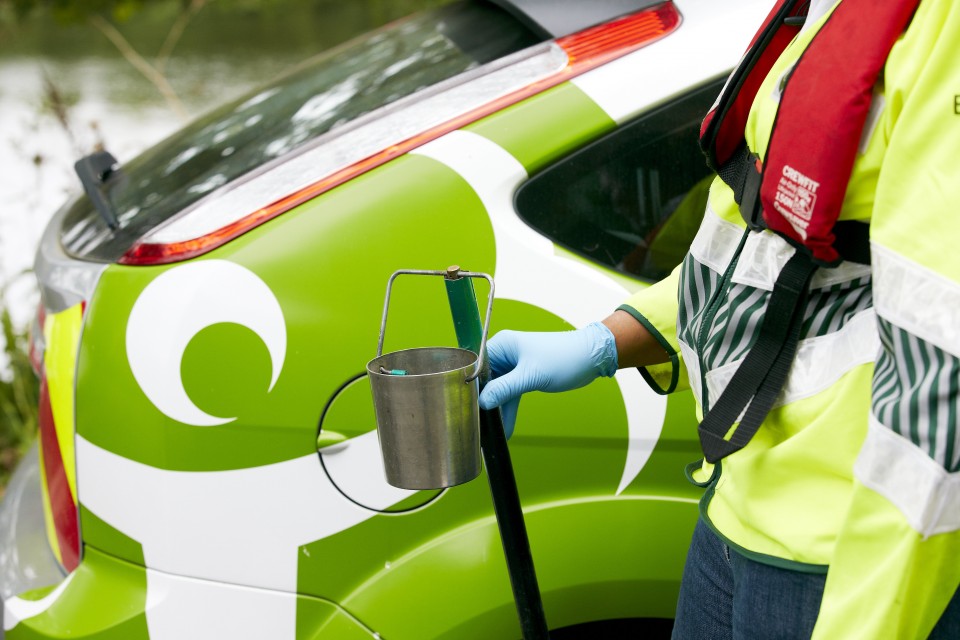And because they don't want to bother treating it, because it costs them money.
There's no problem treating the sewage itself. If there's more sewage to treat, it costs the customer more money. The issue is that it's more than just sewage...
In truth, if it were just raw sewage, that would work in the companies' favour as they can use that for power generation and make even more money. The problem is that the discharges are full of fat, grease, nappies and other stuff that shouldn't be there in the first place.
THIS is what blocks the sewers and results in the overspill into rivers.
Why do you think "Bin it, don't block it" became the slogan written on all TW's vans?
We know they have been doing it illegally for the past 30 years, since it was privatised.
Not quite. The 1991 and 1994 regulations came into effect after privatisation, and long after most of the infrastructure systems were implemented in the 1950s.
Rules and standards have changed further since, but it remains legal under certain circumstances.
The public should be allowed to sue the ones responsible (companies and individuals). If that bankrupts them, too bad. They should be made an example of.
And companies should be allowed to prosecute people who abuse the network.
Because of a handful of greedy ***** I think there is a single river left in the UK which is actually safe to swim in, and now they want us to pay extra for what they should have been doing since the start.
And what do you think it is they should have been doing, exactly?
What water companies should have been doing is increasing bills every time someone blocks the public sewer, which is what causes these discharges. That and fining, naming and shaming the commerecial properties that are dumping their waste into the system - You'd have far fewer local takeaway restaurants, but the waterways would be far cleaner.
Perhaps but i thought (and perhaps i am mistaken, if i am feel free to correct me) that it was only meant to happen in a rare emergency OR when there was massive flooding issues, and in that case not only is it a lesser of 2 evils scenario, the logic is it would be so dilute anyway in that case as to be less of an issue.
That's how it was designed to happen, yes. Typically outfalls are designed to a 1-in-10 scenario, meaning blockages bad enough to trigger an outfall should only happen once in 10 years.
However, that relies on people only putting things down the sewer that they're supposed to. It was never intended to handle large volumes of nappies, condoms, sanitary towels, wet wipes, fat, grease, cement powder, food wrappers, or any of the other stupid things people put down there.
Are you suggesting (and its possible given the quality of our media) that all the reports of massive increases in the amounts of dumping of raw sewage is a lie and its no better or no worse than it was a decade ago?
The amounts of monitoring and reporting have increased, while the permissible levels have been reduced. So statistically it can be spun that way, but the actual volumes of discharge haven't increased by any notable amount.
Instead of discharging (for example) 1000 litres a year and being at 90% of permitted levels, they're now discharging 1002 litres a year and are at 500% of permitted levels. It appears worse because the goalposts have moved.
(iirc 1 excuse being that since brexit it is harder to get the chemicals needed to safely treat the water, which a quick look on fullfact does appear to carry some weight (i have not read in depth due to me meant to be working

)
That is a factor, especially with anything coming from Germany as they seem reluctant to ship anything to the UK.
IMO, though, the bigger issue is the frequency of sewers blocking. My crews clear almost 200 blockages every day, and the screen-cleaners go out every two hours to do a job that only used to be needed maybe once every few days. Most of this is down to people dumping stuff down drains and into waterways that then end up being trapped in the screens at the treatment works inlets.


 )
)





